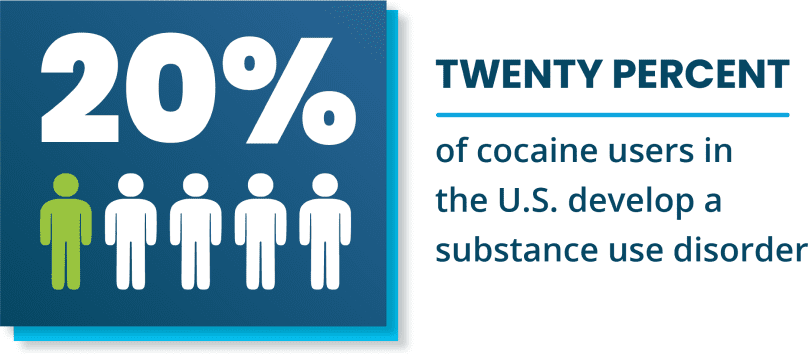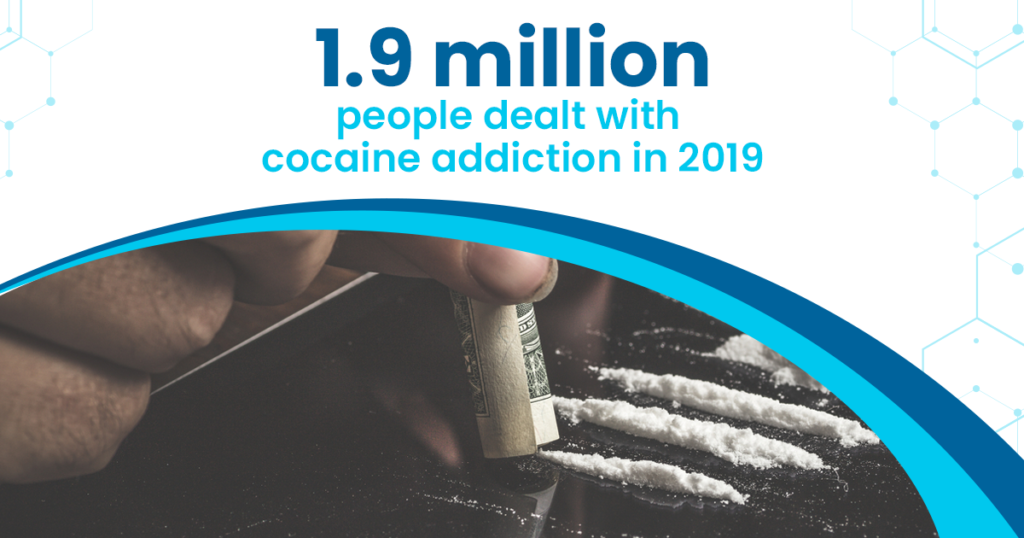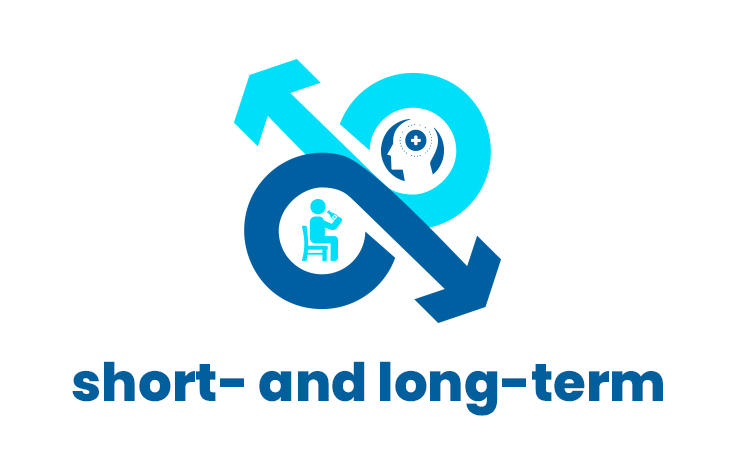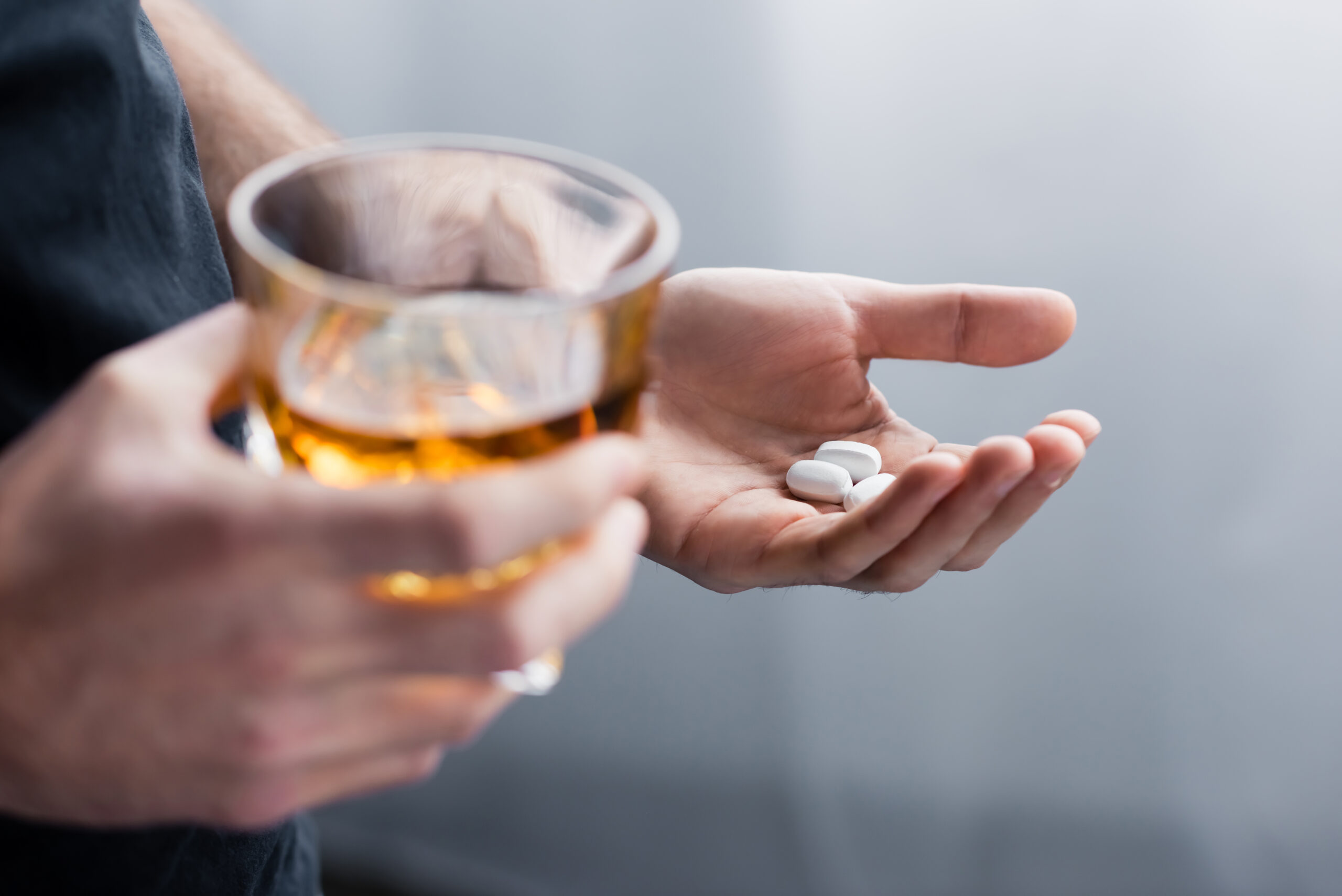Cocaine Treatment: Symptoms, Causes, and Therapies for Cocaine Abuse
The leaves of the native coca plant make cocaine a highly addictive, stimulating, and abused narcotic. Cocaine is an illegal drug, although medical professionals can use it for legitimate medical procedures such as local anesthesia during specific surgeries. Cocaine appears like a fine, white, crystal-like white powder on the street. To boost revenues, street vendors frequently combine it with ingredients like cornstarch, talc, or flour. They might also combine it with other drug prescriptions, such as stimulant drugs and amphetamines.
Cocaine use disorder puts the user’s heart and circulatory system under strain and can lead to heart attacks and strokes. In addition to the high potential for heart attacks and strokes, cocaine users may be impulsive and do dangerous things while high on drug addiction.
Rehab center provides you cocaine addiction treatment program. Haven Detox has a variety of options to help you stop using cocaine. During cocaine treatment, you will need to consider your options and whether detox is the right route for your situation. Most of the time, cocaine detox will be the first step in overcoming addiction. Haven detox is one of the best facilities in the United States to treat substance use disorders. Our treatment plan includes inpatient, detox, and additional therapy programs to provide you with successful long-term recovery. Individuals can get a personalized treatment plan and overcome substance abuse or cocaine abuse.
Treatment Services
Supervised inpatient detox can help an addict overcome cocaine abuse. Treatment options focus on the connection between thoughts and behaviors and help patients develop healthy responses to their thoughts and feelings. It has been proven effective with recovering addicts of all types. It helps strengthen the patient’s self-awareness, improves communication skills, and reduces stress.
Patients get a level of care during the detox process at Haven Detox. Medical detoxification works to cleanse the body of the chemical substances that cause a relapse. It also helps to heal the physical body as you are facing severe withdrawal symptoms. In many cases, issues that cause a relapse stem from emotional or spiritual pain. For this reason, it is important to find an inpatient treatment program. At Haven Detox treatment center, patients can detox and enter effective drug abuse treatment programs, enabling them to focus on healing the emotional and spiritual sides of their addictions.

Cocaine Addiction Symptoms
The most common signs of cocaine addiction are intense cravings and mood swings. This is caused by a chemical change in the brain caused by cocaine use, which triggers intense cravings. These cravings often last for weeks, even months, after a person has stopped using the drug.
Regular cocaine use can result in tolerance, which means the person will need higher doses of the drug to experience the same effects. In addition, they may spend more time seeking out cocaine than they would otherwise, neglecting other duties. They may also withdraw from friends and family and stop participating in activities they once enjoyed. In most cases, the person will have to seek treatment for cocaine addiction to get back on track and start their recovery process. Some side effects of cocaine use are:
- Frequent sniffles or a runny nose
- White powder on the nasal area
- Avoiding or arriving late for work
- Paranoia
- Legal problems
- Dilated eyes
- Long stretches
- Reduced appetite
- Overconfidence
- Over-excitement
- Financial difficulties
- Mood changes
- Irritability
- Depression
- Disturb heart rate
While many of the short-term effects of cocaine addiction are obvious, you need to seek professional help as soon as possible when you notice any of the above symptoms. There are several different types of treatment for cocaine addiction. Depending on the severity of the addiction, the person may require multiple treatments, including therapy and medication. Often, the person will require several months of therapy to recover fully.
The best way to decide whether or not to seek treatment is to talk to a doctor or addiction specialist. Your primary care physician can help you find a qualified mental health professional, such as an addiction medicine or addiction psychiatry doctor. You can also talk to a licensed alcohol and drug counselor. A helpline can provide information about addiction treatment facilities and other resources.
If you are concerned that your loved one may need help to overcome cocaine addiction, the best thing to do is to encourage them to seek help. The drug or alcohol user may make excuses for their behavior, so you must be firm in encouraging them to get help. This is an essential first step in your long-term recovery.
As a family member, you may feel several emotions. You may be concerned about the safety of your loved one or the detriment that the addiction is causing to the rest of the family. You may be Mworried that the addict’s addiction may cause them to be in debt because of expenses, legal issues, and failed attempts at rehabilitation. You may be tired of covering for your loved one at home, and you’re worried about the consequences of their actions. While it’s perfectly natural to be concerned, speaking up and getting help for your loved one as early as possible is essential.
You need to set boundaries. If you’re worried that your loved one will become a drug addict, don’t allow them to spend money you don’t have. It would help if you remembered that enabling someone’s addiction harms your health and well-being and the addict’s. By protecting your loved one from the consequences of their actions, you’re taking away their motivation to get help.

Causes of Cocaine Addiction
Cocaine is one of the most commonly used illegal psychostimulants in the world. Some estimates indicate that 5.4% of adults have tried it, and 20% of those users develop an addiction. In Europe, the prevalence of cocaine dependence is about 1.1%, which is higher in males than in females. However, over 80% of cocaine users will not become chemically dependent after two years. About 20 percent of cocaine users in the United States will develop a use disorder.
Cocaine addiction is an extremely serious disease that negatively affects a person’s life. The disease is caused by biological, psychological, and socioeconomic factors. In some cases, addiction is triggered by family history.
Although family history plays an important role in the development of addiction, the environment also plays a key role. Growing up in a home with addicted parents increases the risk of addiction. It also makes a child more likely to experience depression and anxiety in adulthood. This may be because the child didn’t have effective emotional management skills in childhood.
The genetic makeup of addicted people may be partly responsible for their behavior. Researchers have found that genes related to addictive behavior can be passed down from parent to child. This suggests that drug use in one generation may cause addictive behavior in another. The genetic makeup of addicted people is similar to that of rats.
Cocaine abuse has many adverse effects on the family, including the children of addicts. This is a serious problem because children of substance abusers are prone to developing the same addiction. Moreover, substance abuse can affect the children of addicts, affecting their growth and development.
Genetics and addictive potential play a significant role in cocaine drug addiction. Approximately 40 to 60 percent of an individual’s genetics influence their tendency to be addicted. However, environmental factors also play a role. While genetics determine the addictive potential, many studies show that environmental factors also lead to addiction.
The genetics of addiction are multifaceted and influenced by the individual’s background. A recent congressional hearing on addiction outlined the new genetic research and recommended ways to incorporate this information into addiction treatment.
Genetics often influences addiction, but the environment can also influence the development of addictive behavior. For example, growing up in an environment with addicted parents can increase the risk of addiction. Children of addicted parents also tend to be more depressed and anxious than adults because they did not learn effective emotional management skills in childhood.
The most important aspect of preventing cocaine addiction is to treat the underlying brain processes that trigger a craving. These processes are connected to the reinforcing effects of cocaine and environmental factors. These factors can trigger cravings during abstinence, as they trigger memory processes associated with the drug. Epigenetic changes and stable gene expression have also been associated with relapse.

Risk Factors of Cocaine Addiction
Drug availability, Lack of Supervision, and peer pressures are the main risk factors for developing a cocaine addiction. Difficult family situations may easily exacerbate these factors, and people with rejection sensitivity may be more easily affected by peer pressures. If a person is experiencing these factors, it is wise to consult a doctor or seek treatment in a renowned addiction treatment center. Children and adolescents may also seek help from their caregivers, teacher, or school counselor. If these efforts fail, 12-step programs may be an option. Effective treatments include individual and family therapy programs which you can get from Haven Detox South Florida.
Another risk factor is the availability of the drug. This risk is more significant for youth and those living in unsupervised areas or in social settings populated with teenagers. In addition to availability, other risk factors include genetics and environment.
Family factors can influence drug use. A strong parent-child bond, for example, can prevent children from engaging in substance abuse. Negative peer associations, peer pressures, and parental abuse can affect children’s chances of drug use. Increasing the number of protective factors is critical in preventing drug abuse.
Peer pressure is an important factor in the development of addiction, especially among young people. Although it is subtle, peer pressure can cause an environment that encourages experimentation with drugs and alcohol.
Peer pressure is one of the most common risk factors for drug addiction, especially among young people. Although peer pressure is often subtle and unspoken, it creates an environment that encourages individuals to experiment with substances. Availability is also a risk factor since many substances are available in common social settings, such as college dorm rooms.
Peer pressure affects all ages, not just children. Drug and alcohol abuse becomes normalized in a peer group, and a child or adult may believe that everyone else is doing it. This can lead to alienation and a high risk of complications.
While there is no way to prevent genetic predisposition, there are ways to reduce the risk. One way is to provide strong supervision to children and teens. Parents can be role models, supporting and redirecting younger people. When children are supervised, they have less opportunity to experiment with drugs and alcohol. Parents can also prevent them from sneaking out with their peers and engaging in risky behavior. Strong supervision involves checking in often, spending time with the child, asking questions, and enforcing consequences when the child engages in risky behaviors.
Lack of supervision is a significant risk factor for developing an addiction. If parents are not involved in the child’s life, or the child does not have adequate supervision at home, this risk factor increases significantly. Adverse childhood experiences and peer pressure can also increase the risk. Lack of supervision can lead to the use of drugs, and young children exposed to them will be more likely to become addicted to drugs.
Other risk factors for addiction include genetic makeup and ethnicity. Native Americans and adolescents are especially at risk. Early exposure to drugs and stress are also risk factors for developing an addiction. Drugs affect the brain in specific ways and can lead to other mental health disorders.

Effects of Cocaine Abuse
Cocaine addiction is a serious problem that can affect many areas of a person’s life, including employment, health, safety, and relationships. It is a powerful stimulant, and a user may not realize how much cocaine they are taking until it becomes habitual. Its addictive qualities are attributed to how it affects the brain’s reward system.
Cocaine addiction is a serious problem, with many serious consequences for the user’s health and safety. It can cause extreme mood swings, financial stress, and employment problems. Some individuals may develop a compulsion to continue using cocaine despite negative side effects. 5-6% of cocaine users become long-term users. The drug causes a chemical reaction in the brain called highly rewarding dopamine.
Employers should know that employees with addiction issues are more likely to have problems in the workplace, such as inefficiency and lack of motivation. Additionally, drug addicts often cover up unexplained absences as medical problems. Moreover, drug abusers tend to have higher health care costs than non-abusers, which is a burden for employers. They also have to face legal fees if arrested while taking illegal drugs.
One of the most significant consequences of cocaine abuse is its high price. Making a habit of cocaine will cause tolerance, which means the person will have to use higher doses to get the same high. This will stress the individual’s relationship with others and may even end. You may face financial and relationship problems, making it difficult to maintain a relationship.
A person’s personality can also be affected by cocaine use. People who use this drug may be more gregarious than usual and seem more out of touch with reality. This can cause problems in relationships because cocaine users may find it difficult to maintain good relationships and build strong bonds. This can also result in them missing work and other commitments.
Many people with addictions will tell you that recovery is the most difficult thing they have ever done. This signifies a person’s vulnerability and willingness to accept help. Taking the necessary steps to recover from addiction is essential to reclaiming their lives. It is possible to recover from the physical and emotional consequences of addiction.
Cocaine can cause several severe cardiovascular effects, from heart attacks to strokes. In addition to increasing blood pressure and heart attack risk, cocaine can cause heart muscle inflammation, causing it to shut down. It can also cause the user to become unable to focus or function properly. A person facing the side effects of cocaine addiction may not drive properly and face road accidents.
Cocaine abuse in the workplace is an increasing concern. A recent study found three percent of truckers reported using the drug in 2016. Similarly, urine testing has shown increases in workplace cocaine use. Additionally, a recent study found that positive cocaine tests increased in Nebraska, Idaho, Washington, Nevada, and Maryland between 2016 and 2017.
Depending on the route of administration, cocaine causes a wide range of short and long-term effects. It produces a strong euphoric high almost immediately after usage, but the effects diminish quickly. When used in large doses, cocaine may cause overdose, which has no effective medical treatment.
Cocaine addiction can also affect several different systems in the brain. It interferes with the normal functioning of these systems and impairs the individual’s ability to resist urges. In addition, it reduces a person’s ability to sleep and eat and can cause mental and physical health issues.
Cocaine can cause various serious health issues, from an increased risk of heart disease to severe depression. The chemical affects the central nervous system, and repeated use of cocaine causes the brain to stop producing dopamine naturally. This can result in severe mental problems like paranoia, insomnia, and depression. It can also cause serious alterations in blood pressure and body temperature.
As a highly addictive drug, cocaine’s effects on the brain’s reward system are difficult to predict, which makes it difficult to stop using it. Researchers believe that the chemical’s addictiveness is due to its ability to inhibit the reabsorption of dopamine by nerve cells. Dopamine is a neurotransmitter that helps the brain recognize positive emotions and rewards the behaviors that led to them.
What to Do If You Are a Cocaine Addict
It is essential for people who use cocaine to talk with a trusted medical professional. A doctor can help them explore treatment options and get support from other sources. If necessary, the drug addict must have a strong commitment to stopping using the drug. If they cannot stop, they should seek help immediately. Haven detox is available for you to provide a residential treatment program to overcome your addiction habit.
There are many different treatment options for cocaine addiction. Treatments can include counseling, psychotherapy, and behavioral therapy. Sometimes, medication is used alongside behavioral therapy to treat cocaine addiction.
Treatment for cocaine addiction usually focuses on reducing cravings and avoiding situations that cause cravings. Patients are taught how to recognize the triggers of cocaine cravings and develop coping mechanisms for such triggers. These coping mechanisms can include distraction, recalling negative consequences, and positive thought substitution.
Cocaine also impairs the immune system and judgment, which means that people with cocaine addiction are more likely to engage in risky behaviors. Cocaine also increases the chances of HIV infection. The use of cocaine can also lead to poor health and malnutrition due to loss of appetite. Long-term cocaine users also have a higher tolerance for it, increasing doses and frequency.
Cocaine is a white powder that can be smoked, injected, or snorted. When smoked, cocaine may cause respiratory problems, including nosebleeds. Injection drug users also have an increased risk of infectious diseases because they are likely to share the same needles. In addition, dirty needles can lead to skin irritation, scarring, and collapsed veins.
Get Help
If you’re suffering from cocaine addiction, getting help as early as possible is essential. Alcoholism is a severe illness that can lead to many problems. Getting help as early as possible can significantly improve your chances of recovery. Call us to get started with treatment.
Our resources are available to help you overcome your addiction with evidence-based therapies and innovative treatments proven by medical science to effectively manage your addiction. Our admissions counselors can help you learn more about the disease and how to keep it out of your life. Contact us confidentially today.

Treatment Services at Haven Detox
Haven Detox provides clinical detoxification services to help patients addicted to alcohol, heroin, opiates, and prescription drugs. The center also includes relapse prevention programming and tools needed to succeed in everyday life. These programs are designed to help patients become productive members of society.
In addition to offering detoxification services, Haven Detox also provides inpatient and residential treatment programs. The residential stay program is designed to promote a holistic approach to the recovery of patients. Addicts receive comprehensive individualized care during residential treatment to help them recover from their addiction. This program also features a medical detox, where a trained medical team assists with the medical aspect of withdrawal.

Medical Detox
We are here to provide you with medically-assisted detoxification treatment. The detox phase can take anywhere from three days to two weeks. This initial stage of treatment can include therapy and holistic treatment options that can alleviate general soreness.
Many drug addicts experience severe withdrawal symptoms during the detox process. This can be debilitating to the body. Withdrawal symptoms can cause serious complications, including psychiatric distress. Those undergoing detox are under the care of licensed medical professionals, who will carefully monitor their vital signs and help them stay safe and comfortable.
Aftercare Plan
Once the detoxification process is complete, patients will receive a comprehensive aftercare plan based on individuals’ unique needs to help them overcome the effects of drug use. These plans may include sober living arrangements, career counseling, and setting them up with community programs. This plan is critical to the success of a patient’s recovery.


Aftercare Plan
Once the detoxification process is complete, patients will receive a comprehensive aftercare plan based on individuals’ unique needs to help them overcome the effects of drug use. These plans may include sober living arrangements, career counseling, and setting them up with community programs. This plan is critical to the success of a patient’s recovery.

Residential Stay
If you are a person who needs to stay at a residential rehab center, then Haven Detox in South Florida is the perfect option for you. Our residential treatment programs offer housing and meals. Residents can concentrate on their SMART recovery in a safe and separate environment. Many rehab centers offer both types of treatment and will custom-tailor a program to meet the needs of each individual. However, a residential stay includes an extended stay but is more effective for your particular situation than an outpatient program.
Additional Therapy Programs
Haven Detox has two treatment programs available for patients struggling with substance abuse. These programs offer 24-hour care and are provided in non-hospital settings. The most common form of residential treatment is called a therapeutic community, which focuses on “resocializing” the patient. The therapeutic community approach utilizes the entire program community as active treatment components. The program views addiction as a social and psychological deficit, which must be addressed through personal responsibility and social productiveness.


Additional Therapy Programs
Haven Detox has two treatment programs available for patients struggling with substance abuse. These programs offer 24-hour care and are provided in non-hospital settings. The most common form of residential treatment is called a therapeutic community, which focuses on “resocializing” the patient. The therapeutic community approach utilizes the entire program community as active treatment components. The program views addiction as a social and psychological deficit, which must be addressed through personal responsibility and social productiveness.

Individual and Group Therapy
The Haven House clinical staff provides individual therapy sessions and support group therapy to patients. Each patient is assigned a professional clinician who oversees their case. Our counselors and therapists provide an environment that is supportive and nurturing and work to develop personalized treatment plans for each client. The clinical team meets weekly to review each client’s case.
The Haven Detox in Massachusetts emphasizes individual treatment. Individuals receive private care and 24-hour supervision during their detoxification and residential treatment. The Haven Detox South Florida medical team uses evidence-based methods to treat drug addiction. The program can last as long as 30 days, and patients can go home after completing the detoxification process.
Get Professional Help Now
The Haven Detox offers dual diagnosis, which helps patients recover from both addiction and mental disorders. Treatment is tailored to the individual’s needs and can include cognitive behavioral therapy, dialectical therapy, and community services.
Addiction treatment begins with detox, and The Haven emphasizes a safe and pain-reduced environment. Our highly trained medical team also offers medication for patients as needed. Get more information about our comprehensive services by calling us at (561) 328-8627.











